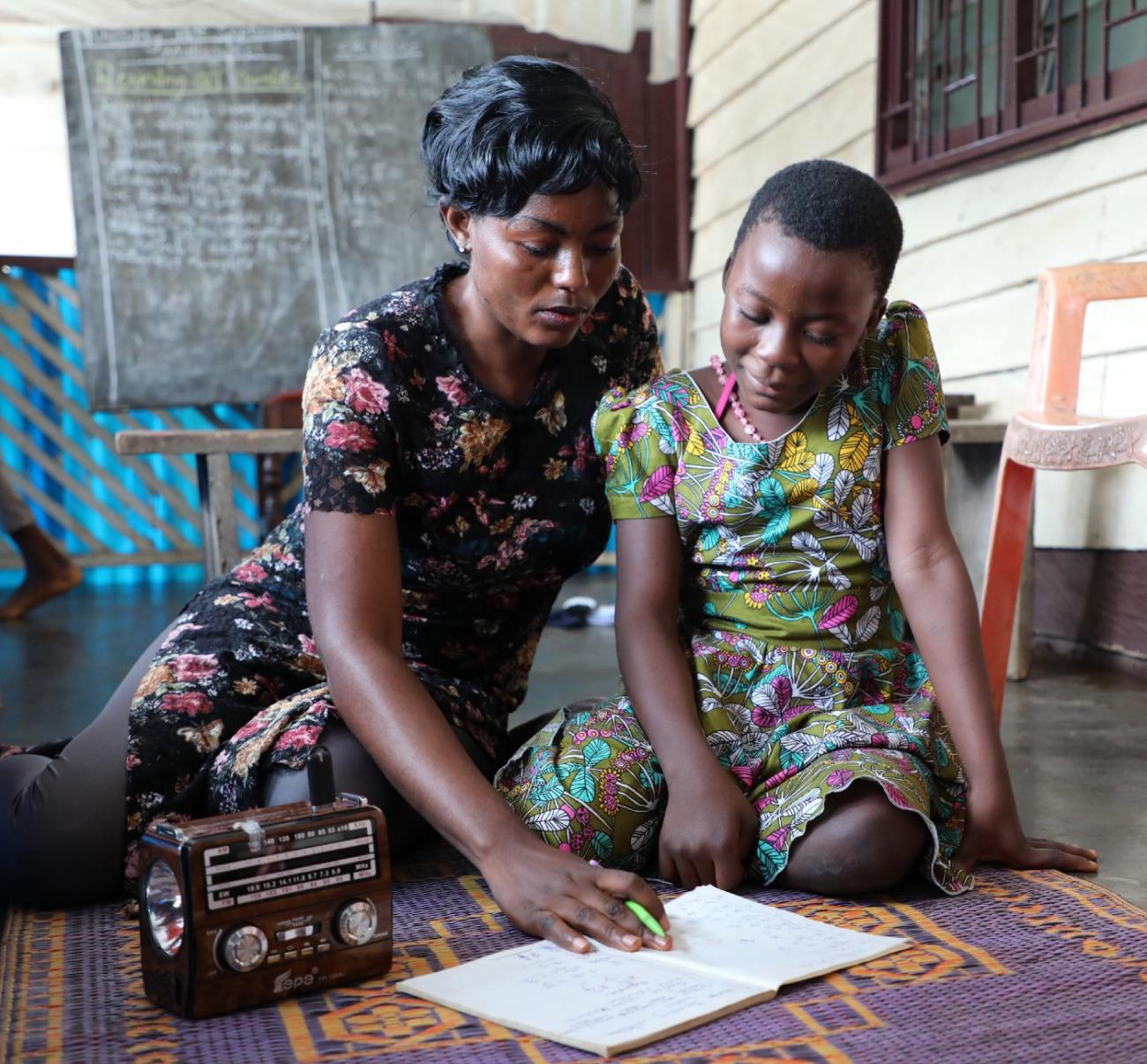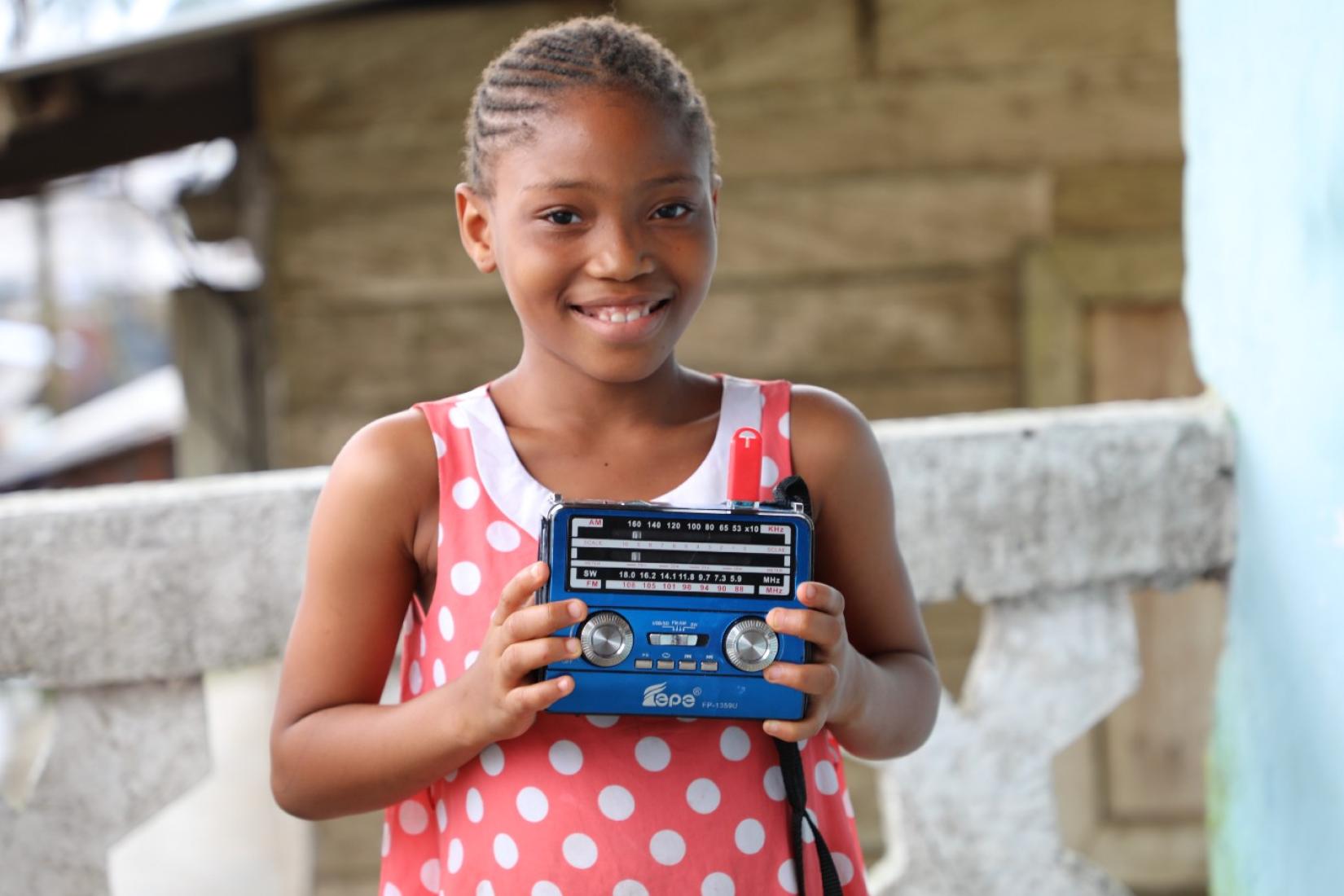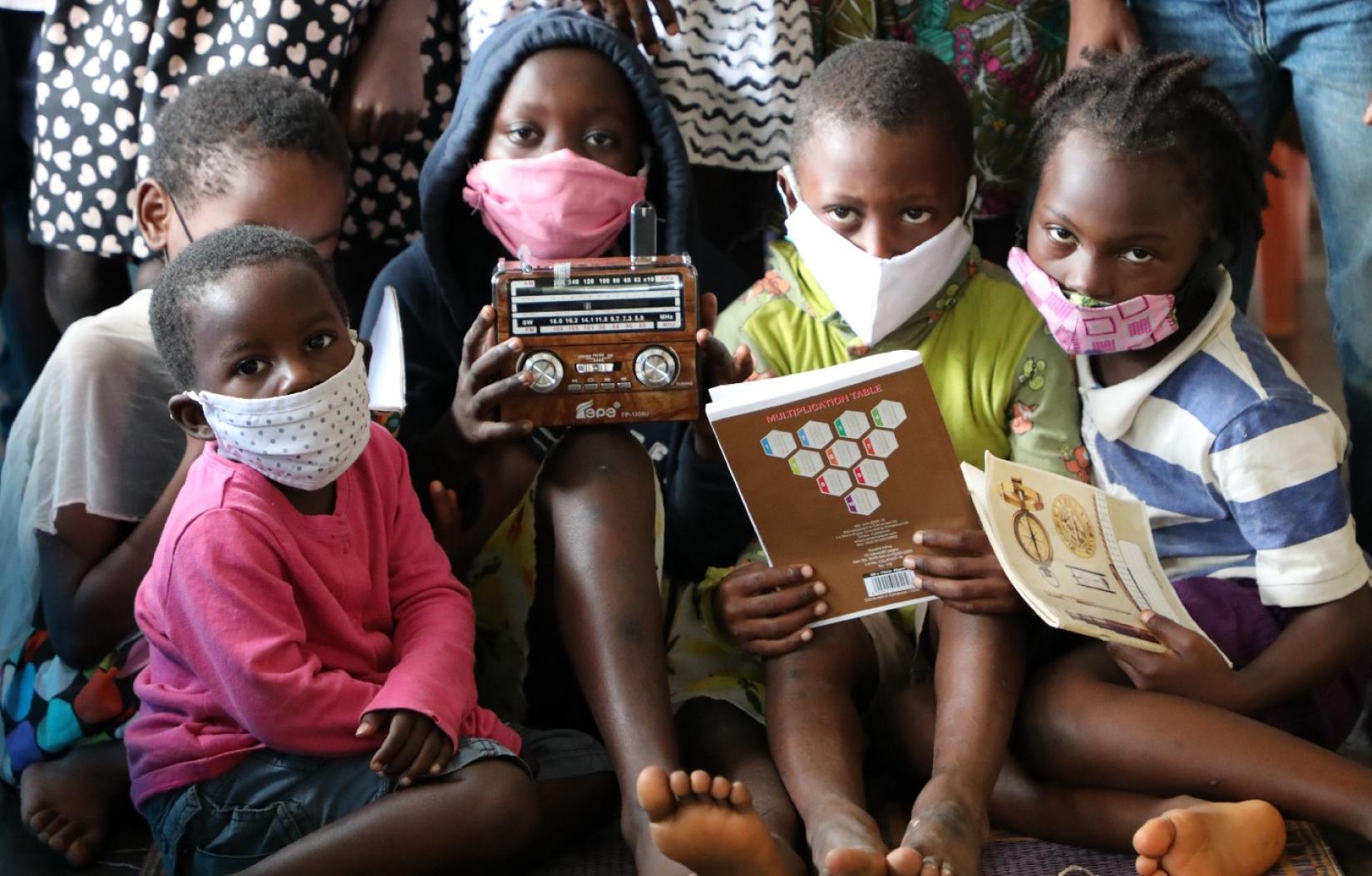An opportunity to learn again: the story of the children of Ngwadikang, Bali — North West region

“UNICEF has given us the opportunity to learn again (after 4 years) through Radio Learning Programme.”
“UNICEF has given us the opportunity to learn again (after 4 years) through Radio Learning Programme.” This is what emerges from Maria, Moustapha, Ramatou and Amidou’s testimony amongst other children of Ngwadikang, a village in Bali subdivision where the Anglophone conflict has deprived them of their right to education since 2017 until last July when they started receiving learning again through radio programmes.
Naturally the indigenous Mbororo children and the people of the North West region in general have previously suffered from various forms of involuntary social exclusion including multiple inequalities, deprivations, and vulnerabilities. Because their community (Ngwadikang village) is located about 4 km from Bali Central and their children were obliged to trek long distances to have access to school. This had three effects on them. (i) Children younger than 7 years old could not afford this long distance journey which made them dropout of school (ii) the girl child who is highly protected by their culture could not as well be allowed to go such long distances through Christian communities and, (iii) quite often Mbororo children suffered beatings from their classmates of the other cultures. While other children in Bali Central had the opportunity to attend non-formal classes when schools closed, the Mbororo children had none. Worse is the fact that the crisis in the North West was exacerbated by previous farmer-grazer grievances like in the case of Njikwa, Bum, Fungom, Wum, Ngarbu which also increased insecurity in the community. This scared the Mbororo people of Bali amongst other communities so much that their children were restricted from any movements out of their community. This made them lose hope especially as there are no signs of the crisis coming to an end yet.

As a result of this, UNICEF and its Partners are providing radio learning programmes to out of school conflict affected children, aged 3–17 years. These programmes are part of the project: Supporting conflict affected children to continue accessing learning opportunities and psychosocial support services in a protective environment from conflicts and COVID-19 in both formal and non-formal settings. Amidst this deadlock and hopelessness to their education, UNICEF, through Green Partners Association, in July 2021 came in to register children for Radio Education Programmes in few communities in Bali including the Mbororo Community. “This glorious day came when Auntie Alice visited us to ask if we were ready to learn using the radio.” Said Amidou. It was amazing as every Mbororo woman and man joined their children with great excitement to register their children. Then came the unbelievable day when Alice Gwanmesia, Focal Person of GPA in Bali arrived with radios and demonstrated how to use them. Furthermore, other children had the opportunity to receive the radios, a dream that finally come true as the children had radios to learn from. Challenging and frustrating was the fact that they were to listen and write as Alice gave them exercise books with instructions on how to use them. The worrying question from both parents and children was how to manipulate the radios from lesson to lesson and switching from Literacy to Numeracy. Amazingly, Alice had prepared a learning schedule which she presented and thought them throughout the way to counteract all the challenges and difficulties associated with the programme.

Today, Maria, Ramatou, Amidou and Moustapha can learn Literacy and Numeracy through Radio Learning Programmes with little assistance. They have been able to eliminate the several challenges they faced when they had to trek long distances to access education. Maria, Ramatou, Amidou and Moustapha’s parents amongst other children are very thankful to UNICEF and its Partners. Despite their happiness, a lot still has to be done to ensure that distant learning can be accessible to many other children who are in conflict affected areas in Cameroon. Classroom learning, be it formal or non-formal is the greatest desire of the community. However, the crisis in Bali has been so intense since June 2021 till date. Nevertheless, negotiations are on-going with community stakeholders to start-up a non-formal learning center before end of 2021.





